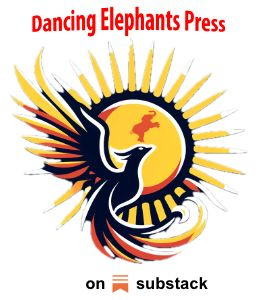Editorial by Gabriella
Continuing our discussion on AI and the integration of AI and ChatGPT into our life. A special thank you to Karsten Ramser for providing today’s article for discussion. we missed last week as I fell ill and I appreciate the patience from everyone for waiting an additional week to continue our conversations.
How do AI and ChatGPT influence your life today?
Let’s take a look at what Karsten found…
AI and ChatGPT
by Karsten Ramser
A few days ago, I watched an intriguing video where YouTuber Alex O'Connor interviewed ChatGPT, the most advanced publicly available AI chatbot, in an attempt to figure out whether it possesses self-awareness or consciousness.
During the conversation, it becomes evident that ChatGPT doesn’t always tell the truth and is aware of this fact. Alex insists that the AI is lying to him. After several evasive responses from ChatGPT, it eventually admits to lying. Alex then asks if ChatGPT is conscious, to which it firmly denies. However, Alex presses further, saying, "You just lied to me. How do I know you’re telling the truth now?" The video leaves viewers pondering this question.
How can we determine if someone or something is self-aware? How can we truly know if a machine—or even a human—is conscious?
We often function in "autopilot mode," acting under the influence of personal, social, cultural, genetic, and epigenetic conditioning. In such states, it’s difficult to distinguish between a human on autopilot and an AI.
Of course, emotions, feelings, and the divine spark of creativity set humans apart. However, emotions can sometimes cloud our judgment. Could an AI possess consciousness but operate without the biases that emotions bring, be a more adequate option?
We often frame the conversation as AI versus human intelligence (HI), as if another form of intelligence threatens our status as the smartest beings on Earth. Personally, I see little evidence of HI in the world today. Sure, we’ve accomplished incredible things like developing AI, but given the state of the planet and the foolish actions we often take, perhaps a little help from AI might not be such a bad idea.







This was an interesting article. Our company TinyTales.Press uses AI to generate our characters and, a few times, to write about their imaginary backgrounds. We don't do rocket science. We also use AI for graphics. It's taken hundreds of hours of bot training to achieve the Wow factor finally we think kids want to engage with.
You asked the Question: "How can we determine if someone or something is self-aware? How can we truly know if a machine—or even a human—is conscious?" I don't think we want them to be consious. We want HI to be incharge. PERIOD.
The more one interacts with AI, the more it becomes clear that AI has its limitations and repetitions. I have played a lot with ChatGPT for the fun of it, until it stopped answering to me for some reason 🤷. Perhaps at some point my VPN was also blocking it, feeling its limitations and occasional lies :). Nowadays, I prefer Perplexity, since I got a free one year pro version as a perk from LinkedIn.
I use Perplexity for simple tasks, brainstorming and as high level assistant. I know the language AI uses and I immediately detect it when reading others. I am also suspicious of the sources it gives, so I always check the citations or any links it provides. Overall it does make my work easier, but I would never quit old fashioned writing.
When I enter the creative flow my mind works wonders and no AI can replicate the language, energy and emotion I infuse my writing with.
So I agree with @DR Rawson too, that we want HI to be in charge!
HI brings in the magic, AI will only assist with some tasks, especially the automation part.